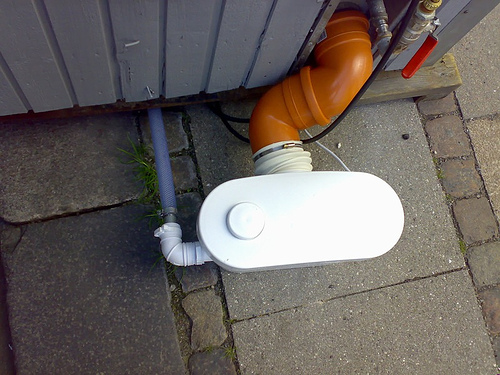Plumbing is a very important part of comfortable sanitary modern living. Maintaining working unobstructed plumbing in your home will help you, your family, and your guests enjoy the time you spend in your home. Water faucets, drains and toilets that carry waste away from your home, and the pipe systems that connect them are all considered part of your homes plumbing system. There are many other appliances, like garbage disposals that can also be connected to your homes plumbing system.

The most common rooms in your home that contain plumbing and therefore can experience plumbing issues are the bathroom and kitchen. Educating yourself about the best way to prevent common plumbing problems in these rooms can save you a lot of money and headache, not to mention help you avoid the stench that a plumbing problem can cause. These tips should help you avoid common mistakes that lead to issues with home plumbing in bathrooms and kitchens.
Let us begin by taking a look at common kitchen plumbing problems. A clogged kitchen drain can cause dirty water to back up into your sink and create an unsanitary mess not to mention making it difficult to complete every day house hold meal clean ups. One of the most common reasons for a clogged kitchen drain is grease build up in the drain pipes. If you wash out pans or rinse plates into your sink after cooking or meal time, make sure you scrape your pots, pans, and dishes into the garbage to remove large pieces of food and grease. Grease is sticky and if you pour large amounts of it down your drain it will create a sticky coating on the inside of your pipes that will harden over time and catch smaller debris as it goes by. This build up can eventually lead to the complete obstruction of your drain pipe. If you do notice your sink beginning to back up, call a plumber immediately to address the problem. Some kitchen sinks have a built in garbage disposal.
These should be used for organic matter only. Never pour grease from a pan into a garbage disposal, and always check to make sure that all food particles have been liquefied.
A bathroom can contain several different plumbed features. Showers, bathtubs, toilets, and sinks, all require plumbing. Proper installation of these items is important if you want to have an easy to maintain system. There are a few other steps you can take to prevent blockage or backups in your bathroom plumbing.
Toilets and their plumbing can be sensitive. Never flush anything except human waste and toilet paper down a toilet. Make sure you have a trash can available in your bathroom for discarding other items like paper towels, tissues, and other bathroom materials.
Limiting the amount of toilet paper you use will also help prevent a backup. If you have children, teach them to count the squares on the roll, four squares are usually enough and will not cause a toilet to back up. If you are having a huge party and your bathroom will be getting a lot of use throughout the night, make sure you have enough toilet paper on hand so you do not run out and have guests begin using tissues or paper towels as a replacement.
Showers, tubs, and sinks should all have drain covers to prevent large amounts of hair from going down the drain and clogging the pipes.
Find out more from RVA Plumbing Tips at http://www.marshallmechanical.com/

